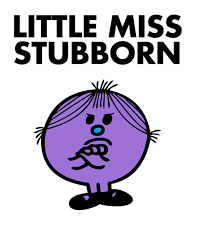
The smile
which she once wore
has gone unseen so long
even she has no clue where to
find it.
(A cinquain is composed of five lines with a syllabic count of 2/4/6/8/2.)
24 Poems ~ 24 Hours
I’ve been on a journey of rediscovery the past decade or so, trying to remember, relearn, and even reinvent myself. Just who the heck did I think I was? Better yet, who did I want to be? Although the answers have evolved over the past few years — like I truly believe I have done — one thing has always remained the same: my love of writing. This is the one day every year that I am totally selfish and make things literally ALL ABOUT ME. And I do that unapologetically! So here I am, toes on the starting line, heart pounding, mind racing, anxious to embark on my fourth consecutive Poetry Marathon. It may not be easy, but it will always be worth it. Hope to see you at the finish line! “Sometimes you’re ahead, sometimes you’re behind. The race is long and in the end, it’s only with yourself.” — Sunscreen, Baz Luhrmann

The smile
which she once wore
has gone unseen so long
even she has no clue where to
find it.
(A cinquain is composed of five lines with a syllabic count of 2/4/6/8/2.)

I
sit and watch the clock,
hear its slothlike tock,
ask one last time for inspiration.
(A four-line poem consists of four lines with a syllabic count of 1/5/5/9.)

“You want me to take a bite of WHAT?”
“Are you even sure that it’s dead?”
“But what if it bites me back?”
My questions kept coming.
From chopsticks laced with
wasabi, he
shoved sushi
down my
throat.
(A nonet poem is comprised of nine lines, where line one begins with nine syllables, line two has eight syllables, and so forth, in a continually decreasing fashion until the final line is only one syllable long. This gives the reader the visual image that the poem is slowly disappearing.)

“Death doesn’t have to be scary,”
she said, squeezing
the old man’s hand,
wiping his brow.
“Just think of it like a rest stop
on the road to
your permanent
Heavenly home.”
His eyes blinked shut, his chest collapsed.
His heart flatlined.
But his smile just
kept on growing.
(A minute poem is composed of 60 syllables split between three stanzas. The four lines of each stanza should have a syllable count of 8/4/4/4. Traditional minute poems are written in iambic pentameter using the rhyme scheme of aabb, ccdd, eeff. This was way too difficult for me to compose in just 60 minutes, so I improvised by eliminating both the rhyme and meter requirements, resulting in my “nontraditional” knockoff version above.)

Bouncing throughout space and time,
Crashing from one life into another,
Desperately seeking his soul mate among
Every new crowd he encounters.
“He is coming, and I am here.”
(An ABC poem is composed of five lines, where the first letter of each of the first four lines follows alphabetical order. You can start with any letter, it doesn’t have to begin with “A”. The fifth and final line can begin with any letter you choose. The inspiration for this poem was to take the last line of a famous book — in this case, it was from Audrey Niffenegger’s “The Time Traveler’s Wife” — and use it as either the first or last line of a new poem.)

Understand
this: money may make
our world go
round, but there
are things so special we could
never name a price.
(A shadorma is a six-line poem with the syllable count of 3/5/3/3/7/5.)

NaNaw was her name,
but Daddy always called her
a stubborn old Goat.
A January baby,
he swears I’m a hardhead too.
(A tanka is a five-line poem with a syllable count of 5/7/5/7/7. Interesting fact: both my maternal and paternal grandmothers were born on the same date — January 20 — although several years separated them. My paternal great-grandmother, my NaNaw Bea, was also a Capricorn, And me, I am a hardheaded Goat as well, born the first week of January.)

Balance
eludes me,
much like rest.
Just when I
feel it
within
reach
of my
tiny T-Rex arms,
my Sasquatchian feet
slip then
slide,
carrying
me one
giant leap further
away from my
unattainable goal:
moderation.
Impossible
to achieve
for a passionate,
all or nothing
lunatic like
myself.
Gray
doesn’t exist
within my box
of crayons, only
black and
white.
(A hay(na)ku is a three-line poem where the first line is one word long, the second line two words, and the final line has three words. A reverse hay(na)ku consists of three lines written in the opposite manner, where the first line is three words, the second two, and the last line one word long. In 2019, I created the Mirror Hay(na)ku, which combines one hay(na)ku and a reverse hay(na)ku into a single poem. The 2020 Poetry Marathon spawned the Hall of Mirrors hay(na)ku, which is composed of a series of five Mirror hay(na)ku stanzas.)

Though Mother Goose was his wingman,
His dad’s ghost always flew shotgun.
With brilliant mind and rebel heart,
He was too good for his own good.
A fearless fighter pilot, known
For his control tower fly-bys,
His reckless indiscretions could
Have tossed them both from Mirimar.
A ladies’ man by all accounts,
He seduced his teacher, Charlie.
Retting’s soulful sounds took him back
While Charlie took his breath away.
Sweaty shirtless sunkissed bodies
Spiked volleyballs into the sand.
“Great Balls of Fire” rang out from the
Piano as they fell in love.
On a routine hop, Pete lost control
Flying blind into the jet wash.
Goose yanked the ejection handle
Before they splashed into the sea.
Goose didn’t make it. Maverick was acquitted.
But his guilt, he couldn’t shake it.
So he loaded up his flight gear
Giving up his lifelong dream.
Charlie found him on a barstool.
She’d come to say her last goodbye.
When she saw how hopeless Pete was,
She had to give one more try.
He just sat there and ignored her.
She stood and left him with a sigh.
He gazed down into his shot glass
Then tossed back the rest of his drink.
A change of heart overwhelmed him.
He attended graduation
And was chosen for a mission
Without further explanation.
Bang, bang! Boom, boom! They lost, we won!
Their dogfight became a headline.
“Yo! Be my wingman!” Iceman said.
“Bullshit!” Pete grinned. “You can be mine!”
(This poem is a mashup of so many things. Firstly, one of the prompts from earlier in this marathon was to condense the plot of a book and turn it into a poem. I stretched that idea a bit by using one of my guilty pleasures and all-time favorite movies, “Top Gun.” Secondly, I challenged myself by fitting it into an actual format — even though it’s technically one that I myself created, the Stop Sign poem. A Stop Sign poem is made up of stanzas of eight lines, with each line consisting of eight syllables. The number of stanzas in the poem determines the number of ways of the Stop Sign. In the poem above, I have written a Five-Way Stop Sign poem.)

I never meant to
hurt you. Drowning in despair,
I let your hand go,
but only for a moment
while I fought to save myself.
If you love me, tell
me, why was it so easy
to give up on me?
Was I not worth saving too?
You know I’d never leave you.
(A somanka is a combination of two tankas written in two different voices that carries a central theme of love. Each tanka is comprised of five lines with a syllable count of 5/7/5/7/7.)